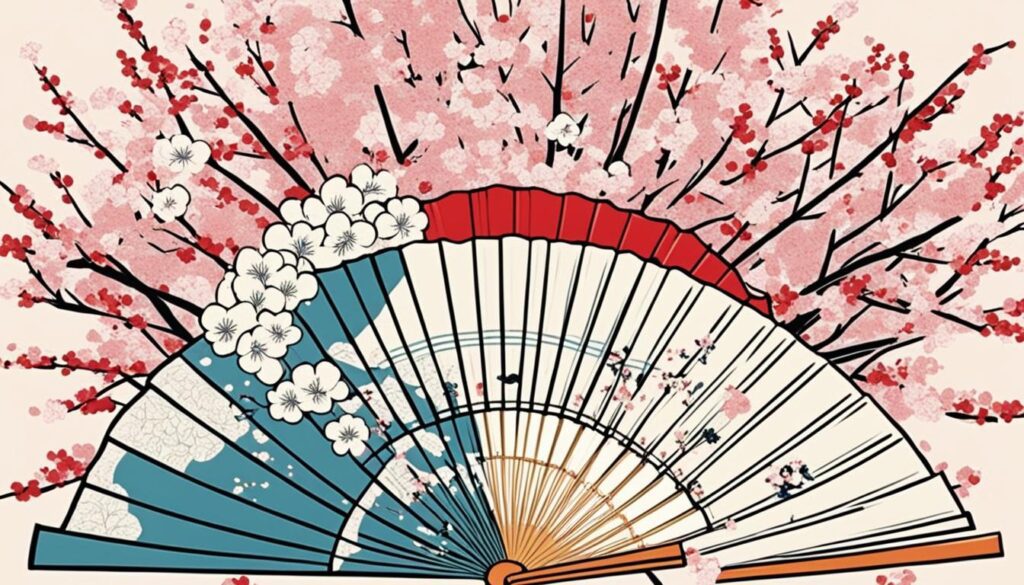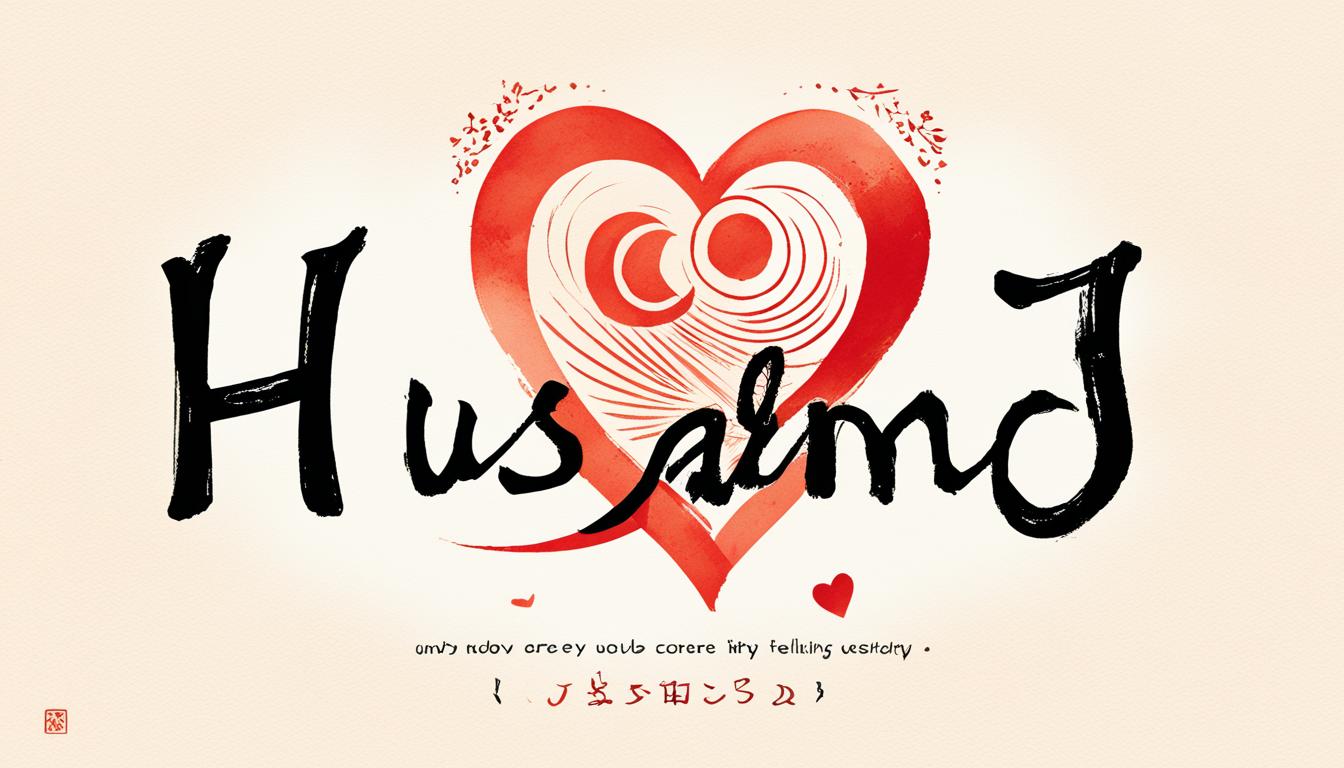In the Japanese language, there are multiple ways to refer to a husband. It’s essential to understand these terms to enhance your cultural understanding and facilitate effective communication. In this article, we will explore the different Japanese words for “husband,” their meanings, grammar usage, pronunciation, and cultural significance. Whether you’re learning Japanese or seeking to deepen your knowledge of Japanese culture, this guide will provide valuable insights.
Common Japanese Words for Husband
When referring to a husband in Japanese, there are several common words that can be used. Each of these words carries its own nuances and levels of formality. Let’s explore some of the most frequently used terms:
| Term | Meaning |
|---|---|
| Otto (夫) | The most general term for husband that can be used to refer to one’s own husband or someone else’s husband. |
| Shujin (主人) | A more formal term that can be used to refer to one’s own husband. It is also used to refer to the master or head of the household, which can carry traditional connotations. |
| Danna (旦那) | A more casual and informal term for husband, commonly used among married couples or by wives to refer to their husbands. |
| Uchi no hito (うちの人) | A colloquial term that literally means “person from my home” and is used by wives to refer to their husbands in an affectionate and informal way. |
These are just a few of the many words that can be used to refer to a husband in Japanese. The choice of which term to use may depend on the level of formality, the relationship between the speaker and the husband, and personal preference. It is important to be aware of these different words to ensure effective communication and cultural understanding.
Controversy Surrounding the Term “Shujin”

One of the words for husband in Japanese, “shujin” (主人), is considered controversial due to its historical connotations of “master” or “head of the household.” The term carries patriarchal implications, reinforcing traditional gender roles and power dynamics within a marriage.
Many Japanese people, especially younger generations, are uncomfortable using the word “shujin” as a term for husband. They argue that it perpetuates an outdated and unequal view of marital relationships. As a result, there has been a debate over the appropriateness of using “shujin” in modern Japanese society.
The controversy surrounding “shujin” reflects the evolving attitudes toward gender equality and the desire to challenge traditional societal norms. It highlights the importance of language in shaping cultural perceptions and promotes a reevaluation of the terminology used to refer to husbands in Japanese.
To better understand the debate surrounding “shujin” and its patriarchal connotations, it is essential to explore alternative terms for husband that embrace more inclusive and egalitarian values. This shift towards gender-neutral language reflects a growing recognition of the need for equality and respect within marital relationships.
The Debate over “Shujin” as a Word for Husband in Japanese
The debate over using “shujin” revolves around the detrimental effects of associating the term with notions of authority and control. Critics argue that it reinforces gender-based hierarchies by positioning the husband as the dominant figure in the household. This narrative perpetuates traditional gender roles and undermines efforts for gender equality.
Supporters of using “shujin” defend the term’s historical significance and cultural heritage. They argue that it is a word deeply rooted in Japanese tradition and should be recognized as an essential part of the language. However, opponents maintain that society should evolve and adopt more inclusive and empowering language choices.
The discussion surrounding the appropriateness of “shujin” is ongoing, with individuals and communities exploring alternatives that better reflect their values and ideals. This dialogue is an important step towards challenging and dismantling patriarchal norms in Japanese society.
Gender-Neutral Terms for Husband in Japanese
In recent years, there has been a growing trend towards using gender-neutral terms to refer to one’s spouse in Japanese. This shift is driven by younger couples who are seeking alternatives to the traditional words for husband that may carry gender-specific connotations.
One of the gender-neutral words commonly used for husband in Japanese is “tsureai” (連れ合い). This term emphasizes the idea of companionship and equality within a marriage, rather than focusing on traditional gender roles. It is a popular choice among couples who wish to foster a more balanced and egalitarian relationship.
Another increasingly popular gender-neutral term for husband is “paatonaa” (パートナー), borrowed from the English word “partner.” This term highlights the equal partnership between spouses, acknowledging their shared responsibilities and decision-making in the relationship.
By using these gender-neutral terms, couples in Japan are embracing a more inclusive and progressive approach to relationships. These words allow individuals to express their commitment and love for their spouse without reinforcing traditional gender norms.
Personal and Affectionate Ways to Refer to Husband in Japanese
In addition to the formal terms for husband, there are also personal and affectionate ways to refer to your husband in Japanese. These terms not only reflect intimacy but also create a closer bond between spouses. Let’s explore some of the endearing and informal words that can be used for your beloved husband in Japanese:
Affectionate Terms for Husband
When expressing love and affection towards your husband in Japanese, you can use the word “anata” (あなた) as a term of endearment. While “anata” is typically used as the pronoun “you,” in an intimate context, it can carry a deeper meaning, emphasizing the special relationship between you and your husband.
Additionally, other informal terms and pet names can be used to show affection for your husband in Japanese. Two common examples are:
- “Anta” (あんた): This term is an informal version of “anata” and is often used between couples to express familiarity and affection. It signifies a close relationship and can create a sense of warmth and intimacy.
- “Uchi no hito” (うちの人): Translated as “my person” or “my other half,” this phrase is used to refer to your spouse. It conveys a deep connection and love, emphasizing the unique bond shared between you and your husband.
These personal and affectionate terms demonstrate the love and closeness you feel for your husband in a more intimate and informal way. They add a touch of sweetness to your conversations and strengthen the emotional connection between you and your spouse.
Cultural and Historical Context of Terms for Husband in Japanese
The different words for husband in Japanese carry cultural and historical significance. These terms provide insights into the social dynamics and values of Japanese society throughout history. By understanding the cultural context of these words, you can gain a deeper appreciation for the nuances and meanings embedded in the Japanese language.
The historical origins of the Japanese words for husband reflect the patriarchal structure of traditional Japanese society. Words like “otto” (夫) and “shujin” (主人) emphasize the husband’s role as the head of the household. These terms were rooted in a hierarchical system where men held significant power and authority within the family unit.
However, societal changes have influenced the development of newer, more gender-neutral terms for husband in Japanese. As Japanese society becomes more egalitarian and women gain more autonomy, words like “tsureai” (連れ合い) and “paatonaa” (パートナー) have emerged. These terms reflect a shift in social dynamics and a desire for more equal and balanced relationships.
The evolution of words for husband in Japanese mirrors the ongoing progress towards gender equality within the society. As gender roles continue to change and evolve, so too does the language. By being aware of these cultural and historical shifts, you can navigate conversations about family and relationships in Japanese with greater sensitivity and understanding.

